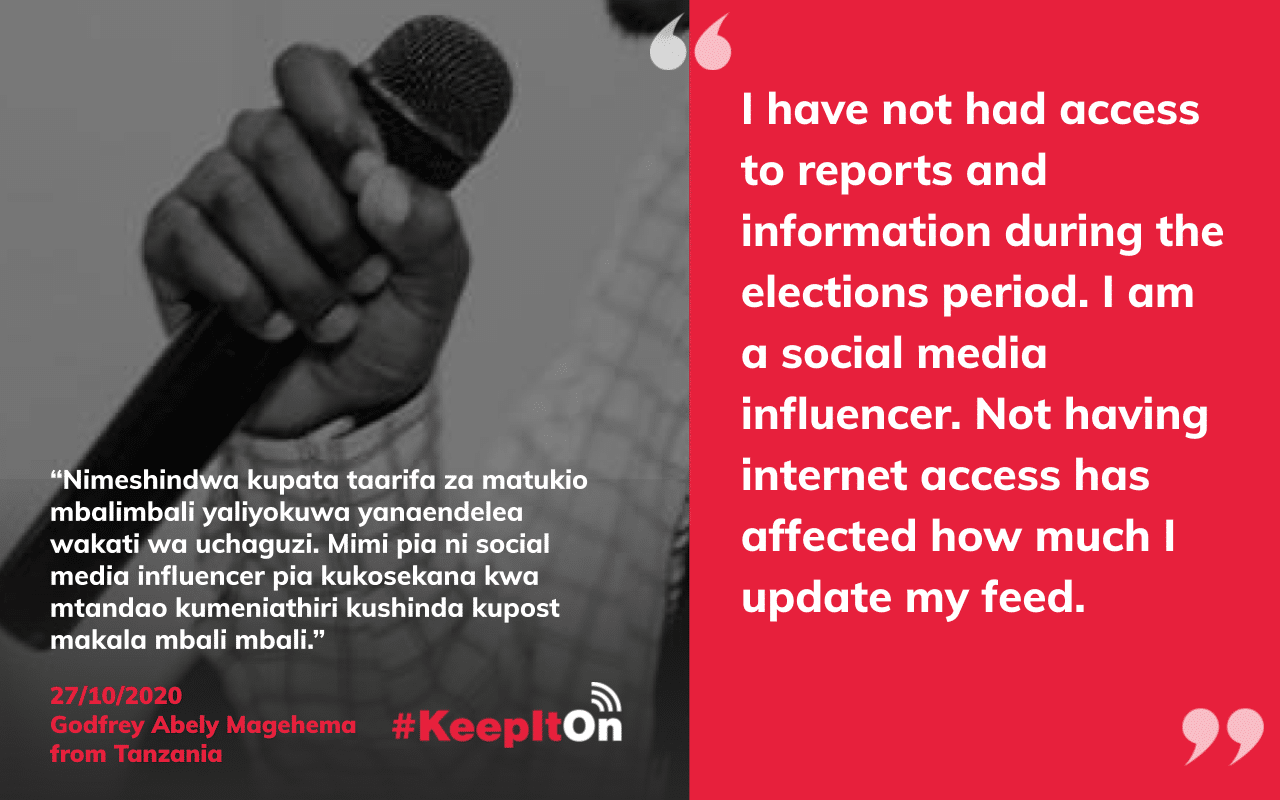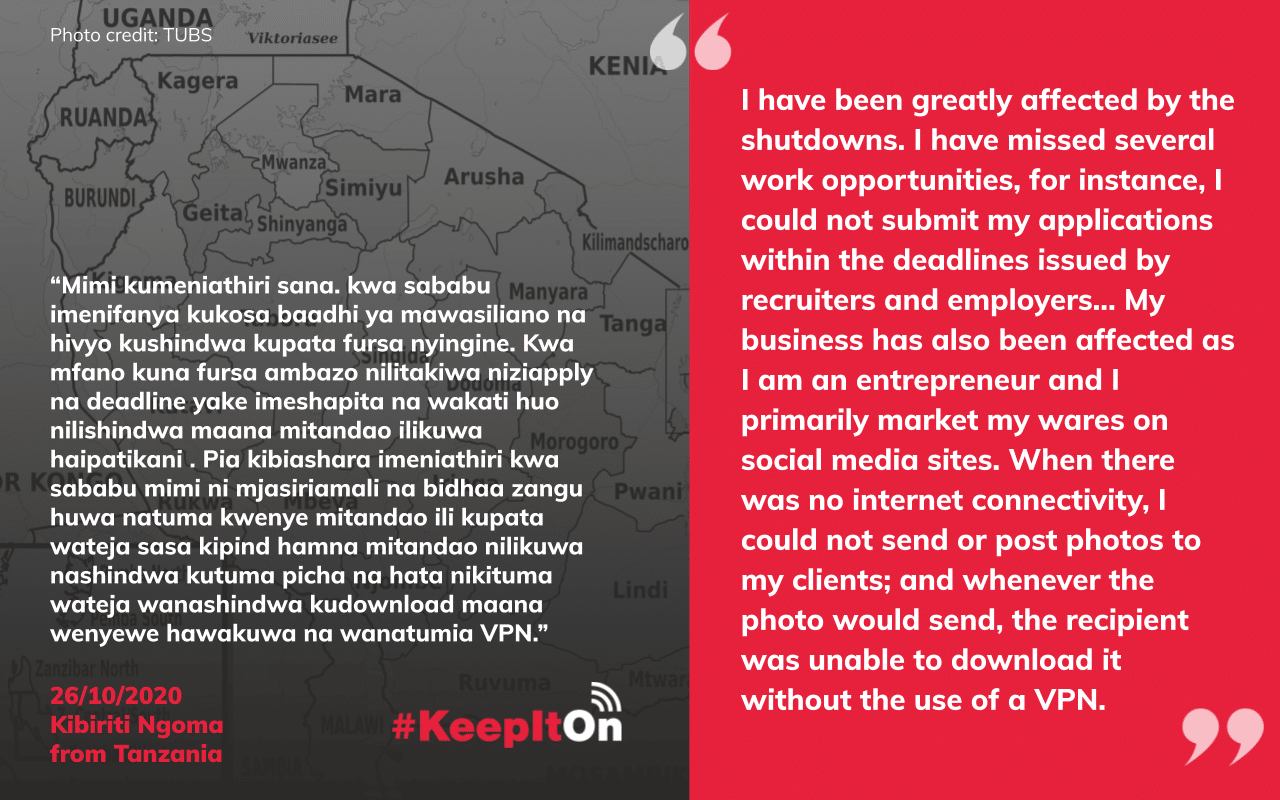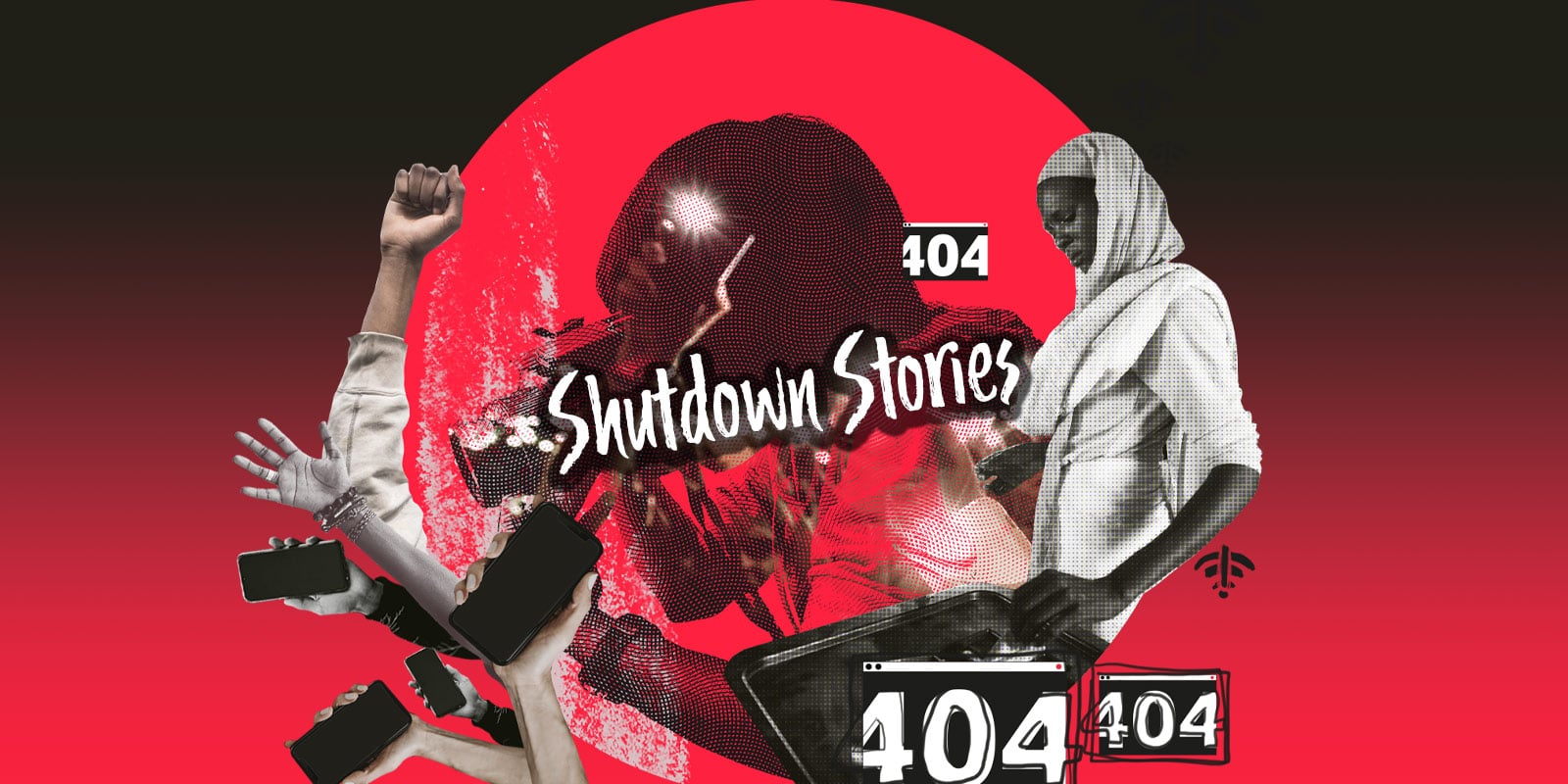Tanzania has made it on to the infamous list of countries using network disruptions as a weapon against citizens during elections. In the lead-up to the presidential elections scheduled for October 28, 2020, authorities took a series of actions to restrict the digital rights of the Tanzanian people. Specifically, the Tanzania Communication Regulatory Authority (TCRA), acting under the repressive Magufuli government, forced telecom and internet service providers to install internet filtering equipment from the Israeli firm Allot, and then deliberately disrupted Twitter, WhatsApp, and Telegram one day before the election.
The TCRA had previously ordered telco service providers to suspend access to short messaging services (SMS) and voice services, leaving millions of Tanzanians without effective communication tools. As of the publication of this post, authorities are still blocking Twitter. Tanzanians can only access it using Virtual Private Networks (VPNs), the use of which the government has effectively banned.
These actions are an attack on Tanzanians’ human rights, including the rights to access information and free expression — rights that are the same online and off. Through the Shutdown Stories project, Access Now documents and shares stories to highlight the impact of internet shutdowns on people’s lives, work, education, business, and relationships. The common refrain is that shutdowns severely disrupt people’s lives and livelihoods. In Tanzania, the government has stopped people from freely accessing information and actively participating in an election, while also making it harder to carry out essential tasks in daily life and operate or grow their businesses.
Below, we share 11 stories to show how the shutdowns in Tanzania are affecting people’s lives. We also share ways you can speak out on their behalf.
Raul Gil is a student at the Dar es Salaam University and a print journalist. She depends on the internet to do her schoolwork and stay on top of the latest news. She also has a beauty business and uses social media for client outreach. None of these activities escaped damage from the internet shutdown.

As a teacher and social media influencer, Godfrey Abely Magehema found himself isolated from a world of information during the elections as a result of the shutdown.

Zainabu Makombe runs a children’s rights organization. The disruption of the networks created a huge roadblock for its daily operations.
![I am the director of an organization that deals with children’s rights. [The internet shutdown] affected the organization’s reporting and communication processes.](https://www.accessnow.org/wp-content/uploads/2023/01/Tanzania-shutdown-story-Zainabu.png)
Kibiriti Ngoma works in the legal field. The internet is her primary channel to get business and clients. Since the internet shutdown, she and her clients have been forced to rely on VPN services, which often have a technical or cost barrier.

Kigogo was deeply dismayed by the communication disruption ordered by the government that was not only affecting the internet, but also restricting SMS.
![Shutdown victim story: I could not connect to Twitter and several other sites. [I could not send] SMSs with certain words, such as Tundu Lissu, Election, Protests, etc. Personally, I need telecommunication channels to remain open so as to carry out my business. Surely when they curtail internet connectivity and block news reports, one cannot send more than ten SMSs per day… it’s a huge problem! It feels like we are living in 2002 instead of 2020!](https://www.accessnow.org/wp-content/uploads/2023/01/Tanzania-shutdown-story-Zainabu-Kigogo.png)
Idd Ninga is a social worker in Arusha, Tanzania. The internet shutdown left her community in the dark during a crucial period for the democratic process. He was shocked that the disruption was implemented without any notice or remedy.
![Shutdown victim story: The act of shutting down internet services has violated my right as a Tanzanian citizen to the access of information, especially during an election period; it has been extremely difficult to stay apprised of what is happening, especially because not everyone has access to traditional media forms—such as television and radio—at all times. Some of us also do a lot of work online and [internet] shutdowns made it very difficult to perform our duties, affecting even our turnaround times. Work that would normally take a couple of days would end up taking two weeks to complete.](https://www.accessnow.org/wp-content/uploads/2023/01/Tanzania-shutdown-story-Idd.png)
Another social worker, Zaituni Njovu, had to pay a mental toll as the internet shutdown affected every aspect of her life.

As a community coordinator in Dodoma, Tanzania, Maria usually works online with her phone and laptop. During the shutdown, she lost the major means to sustain her work.

The shutdown was devastating news to Florah Amon, a journalist whose entire work depends on the internet.

Christina Gauluhanga is a writer in Tanzania. The recent nationwide internet shutdown has severely interfered with the work of her and her colleagues.
![The internet shutdowns have caused a breakdown in our office communication due to the fact that writers [depend heavily on] the internet to communicate amongst ourselves. I have not been able to send stories and browse the internet.](https://www.accessnow.org/wp-content/uploads/2023/01/Tanzania-shutdown-story-Christina.png)
Kidawa Mwakaseko is an online safety activist. Because of her, her family and friends were able to learn how to use VPN tools to circumvent the blocking and restrictions of online services.

How you can help fight shutdowns in Tanzania
In 2020 alone, the governments of Togo, Burundi, Guinea, Belarus, and Myanmar also disrupted access to the internet and digital communications tools during elections. Network disruptions interfere with people’s rights to free speech, access to information, and participation in the democratic process — and you can do something to stop it.
Help us amplify the #KeepItOn coalition’s call to governments to stop using internet shutdowns to violate the rights of people globally by taking the following steps:
Share this blog post on social media using the hashtag #KeepItOn and #InternetShutdown to raise awareness about the devastating impact of internet shutdowns on people’s lives.
Share our Shutdown Stories form with your network in Tanzania to help us gather more testimonies for our advocacy work, which can help serve as evidence of harm in court and international forums.
Learn more
#KeepItOn is a global campaign that unites more than 220 organizations around the world fighting to end internet shutdowns through grassroots advocacy, direct policy-maker engagement, technical support, and legal intervention.
If you have questions about internet shutdowns, you can get answers by subscribing to our Kill Switch podcast.
